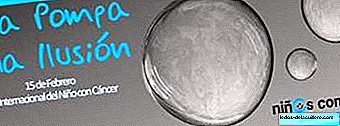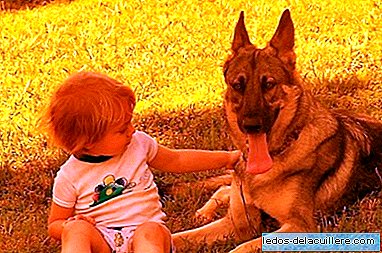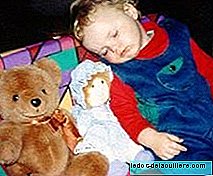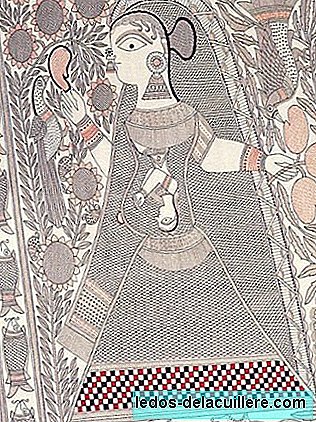
We didn't want to let February 15 end without echoing that today International Children's Day with Cancer has been celebrated, which aims to raise awareness and raise awareness in society about the importance of the problem of childhood cancer.
This year we want to emphasize the importance of detecting the disease early, since by early diagnosis it is easier to act against it. That is why the motto for 2013 is "Early diagnosis ... makes a difference."
In Spain, the incidence of cancer up to 18 years is 13 to 15 cases per 100,000 inhabitants and year, which represents 0.4% of the total Spanish population: about 1,300 new cases are diagnosed annually.
Childhood cancer is the first cause of death due to illness in children from 1 to 14 years old, and according to data from the National Tumor Registry, the most common cancer in children up to that age is leukemia (25%), followed by neoplasms of the Central Nervous System (19.6%) and lymphomas (13 , 6%).
At present, the prognosis in children with malignant tumors is good, with a five-year survival of 77%, exceeding even the expectations recorded in adults.
In part, these encouraging data are due to the proliferation of new techniques incorporated in the diagnosis and treatment of these children, as well as in the monitoring of their evolution.
On the website of Kids with cancer (Federation of parents) we find the Manifesto of the International Day of Children with Cancer 20133, which we want to reproduce here. It affects the importance of early diagnosis of the disease:
Hello everyone, I am a child and I am sick with cancer. I am not the only one, we are many more, statistics say that around 1,300 children and adolescents up to 18 years of age, we are diagnosed with cancer every year, in Spain. We all have something in common, we suffer from a serious illness that puts our lives at risk. Every year, the International Confederation of Organizations of Parents of Children with Cancer (ICCCPO), dedicates this day February 15, to sensitize society around the world about the problems that affect us and that is why we are here today, as Spanish Federation of Parents of Children with Cancer, to tell you some of our needs and problems. Early detection opens an unequivocal line between the life and death of some children and adolescents. The path that the affected ones travel usually goes from Primary Care, of their Health Center, through the Center of Specialties, sometimes, until arriving at the Hospital. We need the diagnosis of the disease to be made as soon as possible because time matters. We need the diagnosis and treatment of childhood cancer to be carried out in a public hospital with a Pediatric Oncology Unit, which has the necessary technical and human resources and with sufficient experience in the diagnosis and treatment of a disease that fortunately is not so common. Our survival depends on facts as fundamental as this. We need, therefore, that the administration determine what these referral hospitals are so that all patients, children and adolescents are referred to them and whatever their place of origin they have the same opportunities to be treated and cured. Today, 8 out of 10 children with cancer can be cured if they are treated in Reference Units specializing in childhood cancer. Early diagnosis can make a difference in the results and in the long-term side effects. Certain health problems may be symptoms of a malignant disease and should be detected. This is our message today International Children's Day with Cancer and we want to make it reach the responsible health institutions, professionals and society in general because, THE EARLY DIAGNOSIS ... MAKES THE DIFFERENCE
The figures show that it is possible to act against the disease successfully in many cases, and that early diagnosis is important. That is why we want to make visible a day like today, International Children's Day with Cancer, and we will continue talking about childhood cancer so that this message is not forgotten.












